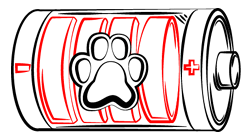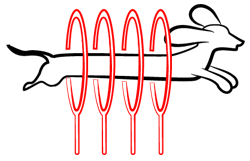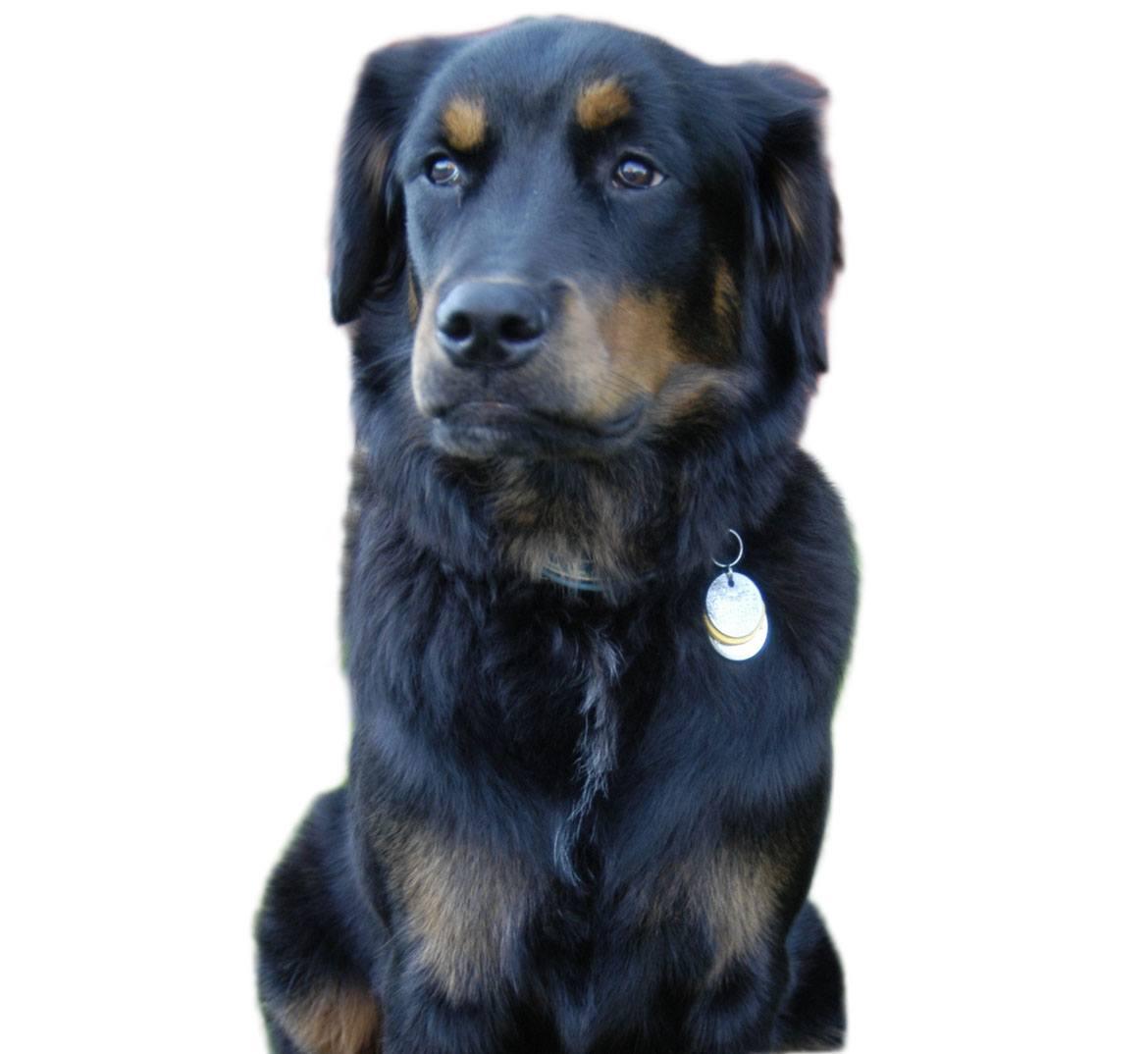
Paws ‘N’ Pups Quickview
Size
| Energy Level
| Trainability
| Paws ‘N’ Pups Rank
|
Characteristics
| Physical Characteristics: Height: Up to 28” Weight: 65-110 lbs. Energy Level: High | Colors: The Labernese is available in the following colors:
|
Health & Longevity
Average Life Span: 7-12 years
The Labernese is a hybrid breed of the Labrador Retriever and the Bernese Mountain Dog. There are some known major illnesses and diseases along with secondary conditions for this breed.
It is important that you look at both of the parents when you try to evaluate any illnesses or diseases that the puppy may inherit. It is important to work with a reputable breeder to better guarantee that these illnesses and diseases do not occur.
Some of the main conditions you need to pay attention to include eye problems, heart problems, bloat, epilepsy, joint dysplasia, cancer, Von Willebrand’s Disease, Panosteitis, and ear infections.
Eye problems can occur in your Labernese, but there are no specific ones to list. These conditions can range from a simple eye infection to blindness from retinal atrophy. To prevent these conditions and manage them, you need to work with your veterinarian to monitor your puppy’s health.
Heart problems can also occur in your Labernese. These conditions can vary from a heart murmur to heart disease and everything in between. Most conditions will exhibit symptoms, but you should work closely with your veterinarian to check for any signs of problems and to monitor your pup’s health over the years.
Bloat can be a fatal condition, especially when it is not quickly treated. This condition occurs when too much air or gas enters into the stomach. This causes the stomach to expand and will place unnecessary pressure on the organs surrounding the stomach.
Epilepsy or seizures can occur in your Labernese, and when they do, they may be quite scary for you. Seizures can be mild or violent in nature and often include some convulsions and sometimes foaming at the mouth.
Joint dysplasia is common in larger dogs and occurs when either the hip or elbow joint is not properly formed or does not fit into the socket as it should. If your puppy has elbow dysplasia, you will notice a problem with their front limbs, and if it is hip dysplasia, you will notice an issue with their back limbs. This condition is often painful and can cause problems for your pup when he or she tries to stand or lay down.
It is possible for your Labernese to develop cancer. There is no one particular type that your pup can develop so you need to make sure that you follow up with all vet checkups to catch cancer early on if it does occur. Your dog could develop any type of cancer and the quicker the treatment, the better.
Von Willebrand’s Disease is an inherited blood disorder that has to do with the proteins in your dog’s platelets. This disease stops the platelets from being able to clot the blood.
Panosteitis is a very painful condition that can occur in your Labernese and is considered bone inflammation. This condition is not permanent, but will often leave your pet distressed and in pain.
Lastly, it is possible for your Labernese to develop ear infections. When they do develop, your pup may need medication to fight back against them. With the proper care and cleaning, you can help prevent ear infections.
The Labernese’s life expectancy is 7 to 12 years.
Temperament & Train-ability
The Labernese is often regarded as a dog that is loving and well-mannered in the home. You will find that your puppy likes to be around you and looks for attention whenever he or she desires it.
This puppy is going to be a companion and loves being around you and your family, so you will find that separation anxiety occurs when you leave the home for extended periods of time.
This breed can be protective, but this is not to be confused with aggression. In fact, you will not find an aggressive bone in his or her body. Your Labernese will be gentle with your children and get along well with other animals in your home.
This is an active dog and does need to receive exercise, so it is recommended that he or she is not placed in an apartment to live. The best home will be one that has a fenced in yard, but if you do not have a fenced in yard, you can take him or her for a walk twice per day for 30 to 45 minutes each time.
The Labernese is considered to be easy to train, and he or she will work to please you. Learning a new command is not challenging, and your Labernese will perform well. You should reward your pup with positive reinforcement.
Grooming
Your Labernese will shed quite often, so it is important that you take some time to brush your puppy once per day to remove loose hairs.
You do not need to bathe your puppy on any special schedule and should only do so when it is absolutely required.
You do want to make sure you clean your pup’s ears once per week, as this breed is prone to ear infections.
Lastly, make sure that you trim your pup’s nails so that they do not become too long. If your Labernese’s nails are too long, he or she will find it painful to walk and move around.
Diet
Your Labernese will eat anywhere between four to five cups of food per day and should be fed a high-quality food that provides him or her with the nutrition that he or she needs.
When you search for a food, make sure to choose one that is considered high quality and does not contain a bunch of chemicals and by-products.
Looking for a Labernese?
 Find A Labernese Breeder |  Labernese Puppies For Sale |  Adopt A Labernese |
Cost
A Labernese puppy will cost you anywhere between $500 and $1,100. In addition to the initial price of the puppy, you also need to factor in additional costs such as preventative care, food, supplies, vaccines, and more. These additional costs can run anywhere between $500 to $1,500 per year.
Paws ‘N’ Pups Ranking
Paws ‘N’ Pups ranks every breed out of 4 with 1 being easiest to integrate into your life and 4 being the toughest – The lower the ranking the better.
Ranking takes into account a few basic factors including cost, skill level needed, high vs low maintenance and how critical regular training is to success. The Labernese makes an excellent addition to any home and will easily integrate into your home. This breed does require brushing every day but is easy to train and will reward you with a ton of love. This breed ranks a 1.
Breeds Similar To Labernese
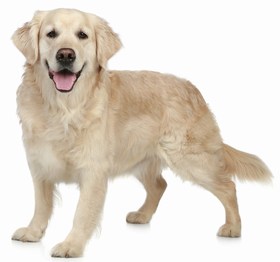 Labrador Retriever | 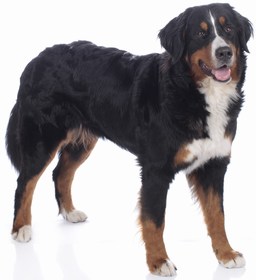 Bernese Mountain Dog | 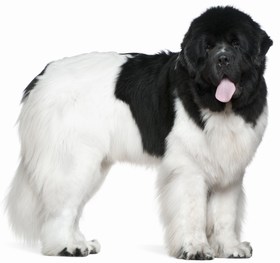 Newfoundland | 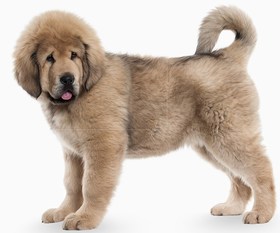 Tibetan Mastiff |


